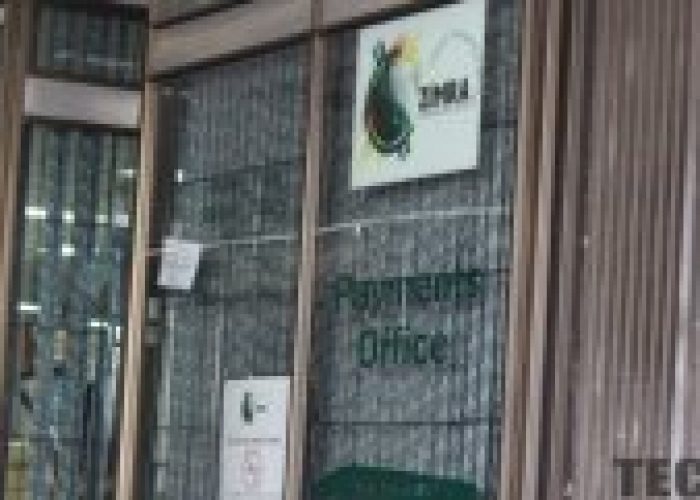



Finance Minister, Mthuli Ncube came up with 8 exemptions to lighten the burden of the controversial 2% tax that was introduced during the monetary policy statement presentation.
The following exemptions are on top of a provision that says, transactions below $10 are not charged the 2% tax. And a cap of $10 000 on the amount of tax to be paid, which means that “transfers above $500,000 will attract a flat tax of $10,000”. The tax will come into effect on the date of the gazetting of the relevant regulations.
This is for those companies or organizations which have more than one bank account. In the event that they want to transfer money from one company account to another (say from FBC to Steward Bank) they don’t get charged the 2% tax. This also counts for those accounts (intermediary account) which a company’s uses for some unique transactions such as buying equity, property etc., If a company wants to move money from these intermediary accounts to the main company account, it won’t be taxed 2%.
For both individuals or institutional investors who want to sell or buy equity (shares), they won’t be charged the 2% tax. Investors move a lot of money they commit in the capital markets. So part of the reasoning behind this exemption was not to dissuade investors to transfer their much-needed investment in the capital market.
The government’s debt is ballooning, owing partly to the treasury bills that banks have lately been heavily investing in. How will banks take it if they are taxed over $180 000 to invest $10 million in treasury bills, for instance? This exemption is here to stop banks from thinking twice before investing in treasury bills because of the 2% tax. Treasury bills are not the only money market products, there are commercial paper, bankers’ acceptances, deposits, certificates of deposit, bills of exchange to name but a few. And it’s not only financial institutions that invest in money market instruments, so that means even other non-financial institutional investors or individual investors are not charged the 2% tax
Rewarding your employee is a cost to the business itself. Now imagine being taxed to transfer their salaries to them? Ugly, right? That’s why companies are exempted from the 2% tax charge when they pay their employees.
It’s self-explanatory, you won’t be charged the 2% tax when your organization wants to transfer money to pay its tax obligations to the government.
This is the reverse of the first transaction we mentioned above. In this transaction, you will not be charged for transferring funds from your main company account to an intermediary account. The intermediary account will, for example, be used to exclusively deal with payments that come (or go) to transactions like buying (or selling) your properties, equity, shares etc. So maybe a company wants to fund its intermediary account so that it buys a certain property or equity, it will transfer the funds from the main company account to the intermediary account without a 2% tax charge.
The phrase foreign currency is now more ambiguous than ever in Zimbabwe (especially with the introduction of US dollar Foreign Currency Account and RTGS Foreign Currency Account) so it’s somewhat confusing for others. But anyway, the exemption should mean that if you want to make a payment with the US dollar Foreign Currency account outside of Zimbabwe you are not taxed 2%. The government was trying to not put off importers by coming with this exemption.
As part of its wholesale allocation of funds to different departments, organisations, enterprises etc., the government thought it wise not to strangle itself by charging 2% tax when it transfers funds. Surely the government can’t tax itself.
JUST A REMINDER: we have done an insightful report on the state of Zimbabwe’s payment system. You can buy it below
Please note that this is a new payment method so if you encounter a problem, get in touch with us on WhatsApp by clicking this link.
Professor Mthuli Ncube is the Minister of Finance and Economic Development.He was the Chief Economist and Vice President of the African Development Bank ,financial, economics, investment, and public policy expert, entrepreneur and academic. Professor Ncube divides his time between the private sector in Switzerland and… Read More About Mthuli Ncube
Steward Bank, is a commercial bank registered and trading in Zimbabwe. The bank is a subsidiary of the Econet Wireless Zimbabwe. It was founded in 2001 by Tawanda Nyambirai as TN Bank. Read More About Steward Bank
FBC Holdings Limited (FBCH) is an Investment holding company listed on the Zimbabwe Stock Exchange and whose principal activities are in Zimbabwe. The Group offers diverse financial services through subsidiaries that span commercial banking, mortgage financing, short-term insurance, reinsurance, securities trading and micro-financing. In all,… Read More About FBC
The post Here Are The 8 Transactions That Wont Pay The Controversial “2% Per Dollar Tax” appeared first on Techzim.